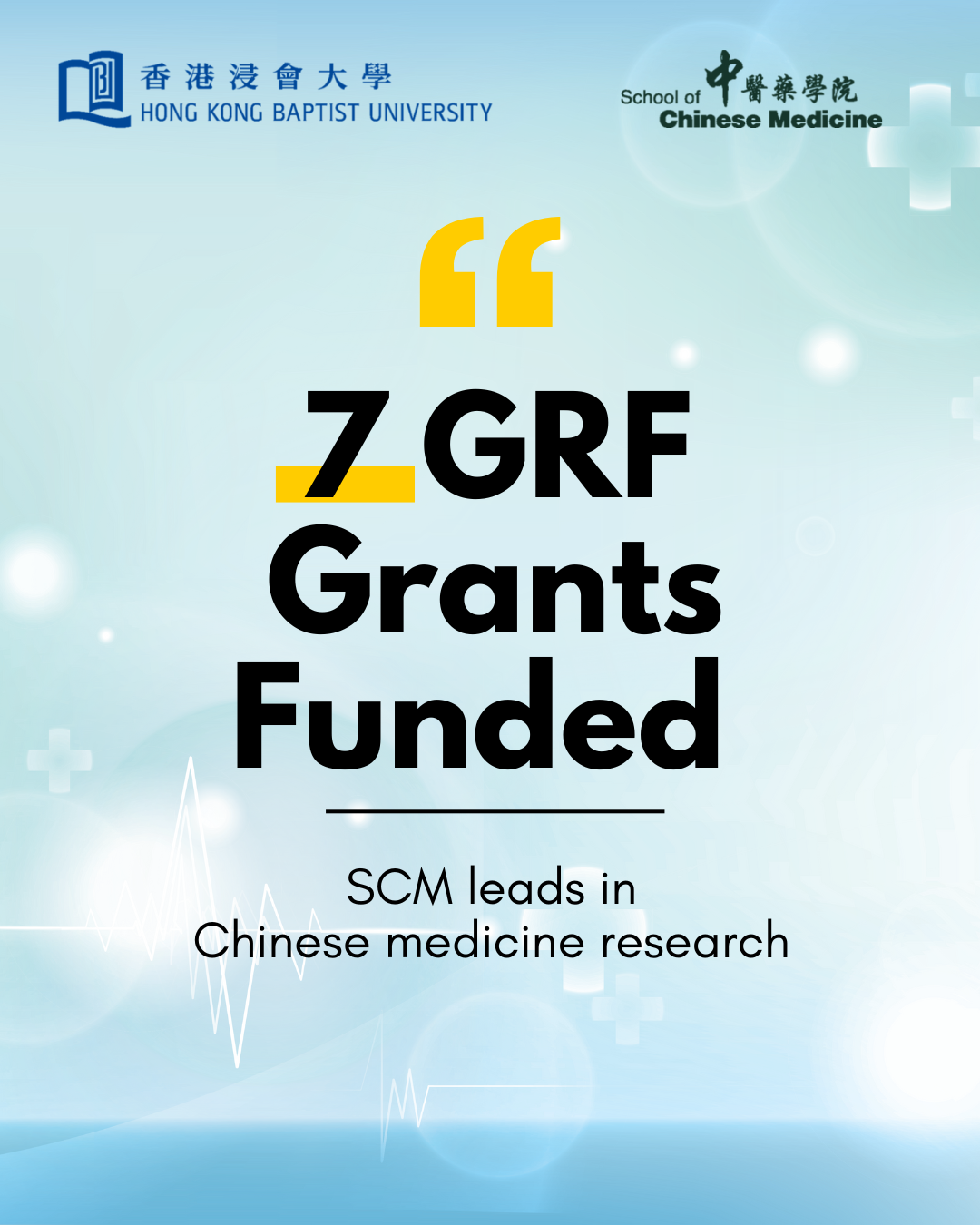News
SCM’s success with promising GRF grants driving innovation in Chinese medicine
14 July 2025
The School has demonstrated outstanding performance in the Research Grants Council’s (RGC) General Research Fund (GRF) 2025/26 with seven projects securing funding. This achievement accelerates the School’s momentum in achieving research excellence and also further establishes its position as a pioneer in driving innovation in Chinese medicine.
This year, a growing proportion of grant recipients are young researchers, underscoring the School’s vibrant research culture and strong potential for future development. The funded projects cover innovative areas, including Chinese medicine, biomedicine, and drug development, employing interdisciplinary research methodologies. The purpose of these projects is far-reaching, with anticipated outcomes that hold significant potential to advance treatment options, elucidate mechanisms of Chinese medicine and therapies, and foster the development of integrative approaches to health and disease management.
Professor Li Min, Dean of Chinese Medicine, takes great pride in the unwavering dedication of the School’s researchers to advancing the frontiers of research. “This achievement is a testament to the tireless efforts and perseverance of our colleagues,” she said. “The support from RGC not only affirms the School’s academic excellence and competitiveness but also motivates us to continue striving for research excellence and fulfilling our commitment to society through impactful research.”
SCM remains at the forefront of Chinese medicine research and is committed to advancing science and improving human health through innovation and transdisciplinary collaboration.
List of GRF 2025/26 funded projects led by SCM
Principal Investigator | Project Title |
Professor Chen, Hubiao | Investigation of triptolide delivery by M2 macrophages for safe and effective treatment of rheumatoid arthritis |
Dr Deng, Zhiqiang | A novel mechanism of autophagy-lysosome pathway impairment in Alzheimer disease-associated neuropathogenesis: Role of AKAP11-mediated autophagy and PKA signaling |
Dr Fu, Xiuqiong | Atractylenolide II sensitizes hepatocellular carcinoma to sorafenib and reduces sorafenib-induced hepatotoxicity: a preclinical pharmacological study |
Dr Liu, Qin | Investigating the detrimental role of Bacteroides fragilis on the development of depression in irritable bowel syndrome via sphingolipid generation |
Professor Lyu, Aiping | Targeting the SNORD3-EZH2-ESM1 signaling axis in fibroblast-like synoviocytes ameliorates rheumatoid arthritis |
Dr Wang, Luyao | Interaction of sclerostin-loop3 with osteoblastic LRP4 plays a critical role in bone loss in disuse osteoporosis |
Dr Yu, Sifan | A next-generation orally administered precise sclerostin inhibitor in osteogenesis imperfecta |

